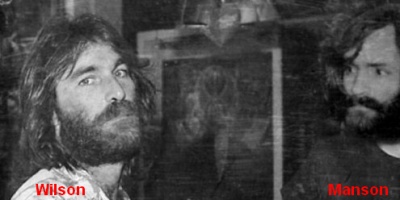Being a metalhead, one would expect me to hate a group like The Beach Boys, yet I’ve played them nonstop for a month now.
Mood music:
I started taking an interest after seeing a preview for the film Love and Mercy, in which actors Paul Dano and John Cusack play Brian Wilson during two stages of his life — the 1960s and the 1980s. I started playing the whole Beach Boys catalog, particularly the album Pet Sounds, widely viewed as Wilson’s masterpiece.
That album was a commercial disappointment when it came out in the mid-1960s. People expected to hear more songs about girls and surfing, but instead they got a series of musical pieces in which Wilson exposed his vulnerable soul for all to see.
I’ve been listening to Smile a lot, too. That album was supposed to be the follow-up to Pet Sounds but was shelved as the band — and Wilson’s fragile mind — fell into chaos. Wilson ultimately finished the album a decade ago and toured behind it. (There’s a great documentary about Smile on YouTube.)
Now I’m reading Catch a Wave: The Rise, Fall, and Redemption of the Beach Boys’ Brian Wilson by Peter Ames Carlin, which chronicles his life from childhood through his many years of madness and finally to his 21st-century resurgence.
The attraction is that I can relate to Wilson’s struggles. I never heard voices in my head like he did, but I’ve suffered the kind of depression that kept me in bed, and I know what it’s like to overeat when depressed. His choice to explore his feelings on Pet Sounds was groundbreaking at the time and brave. It inspires me.
It’s also a great musical history lesson. Reading about the way Wilson wrote and recorded gives me a lot of insight into the techniques we’ve seen in more recent decades.
I won’t stop devouring heavy metal, but it’s fun to expand my musical horizons.



